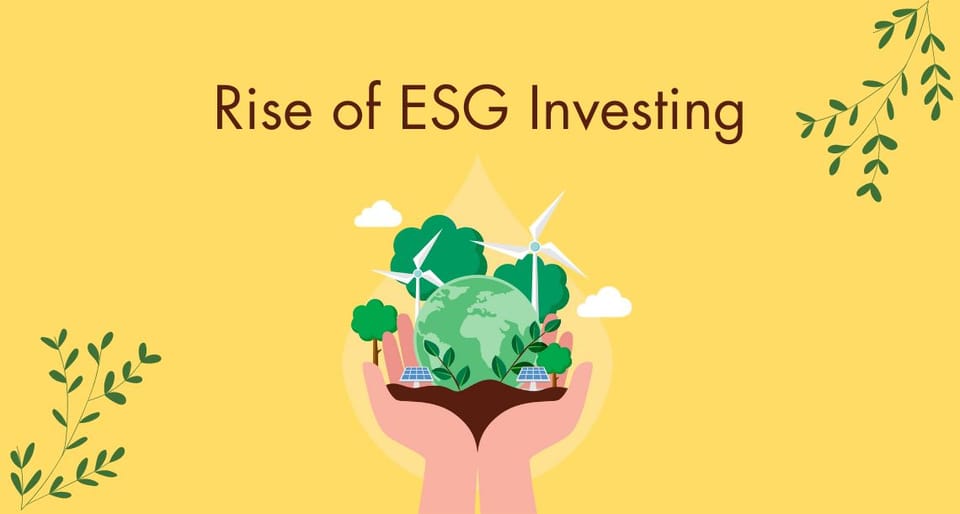The Rise of ESG Investing: What You Need to Know

In recent years, ESG investing has become a buzzword in the financial world. But what exactly is ESG investing, and why is it gaining so much attention?
What is ESG Investing?
ESG stands for Environmental, Social, and Governance. ESG investing is a strategy where investors consider these three factors in addition to traditional financial metrics when making investment decisions.
- Environmental: This includes how a company impacts the environment, such as its carbon footprint, waste management, and resource usage.
- Social: This examines how a company manages relationships with employees, suppliers, customers, and the communities where it operates. It includes factors like labor practices, diversity, and customer satisfaction.
- Governance: This looks at how a company is run, including its leadership, executive pay, audits, internal controls, and shareholder rights.
Why is ESG Investing Important?
- Sustainability: Companies that focus on ESG factors are often more sustainable and can adapt better to future regulations and societal changes.
- Risk Management: ESG investing can help identify companies that may be exposed to significant risks due to poor environmental practices, social controversies, or governance issues.
- Long-term Performance: Studies have shown that companies with strong ESG practices often perform better in the long run, making them attractive to investors looking for stable, long-term returns.
The Growth of ESG Investing
ESG investing has seen tremendous growth over the past decade. Several factors have contributed to this rise:
- Increased Awareness: Investors are becoming more aware of the impact their investments can have on the world and are seeking to invest in companies that align with their values.
- Regulatory Changes: Governments and regulatory bodies are increasingly requiring companies to disclose ESG-related information, making it easier for investors to evaluate ESG factors.
- Performance: Many ESG-focused funds have delivered competitive returns, attracting more investors.
How to Get Started with ESG Investing
- Research: Look for funds or companies with strong ESG ratings. There are several rating agencies and platforms that provide ESG scores.
- Define Your Priorities: Decide which ESG factors are most important to you. Are you more concerned about environmental issues, social justice, or corporate governance?
- Consult a Financial Advisor: If you're unsure where to start, a financial advisor can help you find ESG investment opportunities that align with your goals.
ESG investing is more than just a trend; it's a shift towards more responsible and informed investment practices. By considering environmental, social, and governance factors, investors can make choices that align with their values and potentially achieve better long-term performance. Whether you're new to investing or looking to refine your strategy, ESG investing offers a way to contribute to a more sustainable and equitable world while pursuing financial goals.
Feel free to dive into ESG investing and discover how you can make a positive impact through your investment choices!
Frequently Asked Questions (FAQ)
Q: Is ESG investing only for environmentalists?
A: No, ESG investing is for anyone who wants to consider environmental, social, and governance factors in their investment decisions. It's about making informed choices that can lead to better long-term returns and reduced risks.
Q: Do ESG investments perform well?
A: Yes, many ESG investments have performed well. Companies with strong ESG practices are often better managed and can be more resilient to risks, leading to competitive returns.
Q: Are there any downsides to ESG investing?
A: One potential downside is that ESG criteria can limit the pool of available investments, which might affect diversification. Additionally, ESG ratings can vary between rating agencies, making it important to do thorough research.
Q: Can small investors participate in ESG investing?
A: Absolutely! ESG investing is not limited to large investors. There are many ESG-focused mutual funds and ETFs available that cater to retail investors.






Member discussion